(Bloomberg) — It’s just past midnight on a Saturday in Soho and the 24-hour shop is one of the few businesses still open. The pub opposite is shutting taps, nearby restaurant staff are stacking chairs, and the last train home to southeast London leaves in 15 minutes.
The eerie calm in one of London’s traditional nighttime hotspots is hard to square with a recent post by Mayor Sadiq Khan promoting the city’s round-the-clock credentials. Britain’s capital is “leading the world in its 24-hour policy, with other global cities looking to us for inspiration,” he wrote on X last month. The social platform’s Community Notes fact-checkers jumped in: “Contrary to the London mayor’s claim, London’s nightlife is in decline.” And Londoners responded with derision, accusing the mayor and his night czar, Amy Lamé, of hyping a scene which, in reality, faces “slow death” and “annihilation.”
A wave of closures in recent years add weight to the charge of a city-after-dark in decline. Between the onset of Covid in March 2020 and December 2023, some 13,800 UK nighttime businesses including clubs, bars and restaurants shut, about 3,000 of which were in the Greater London region, according to the Night Time Industries Association. Prominent recent casualties include Werkhaus, Brixton’s Club 414 and G-A-Y Late in Soho.
Though walloped by Covid and the cost of living crisis, the scene’s deterioration long precedes the pandemic and echoes far beyond London.
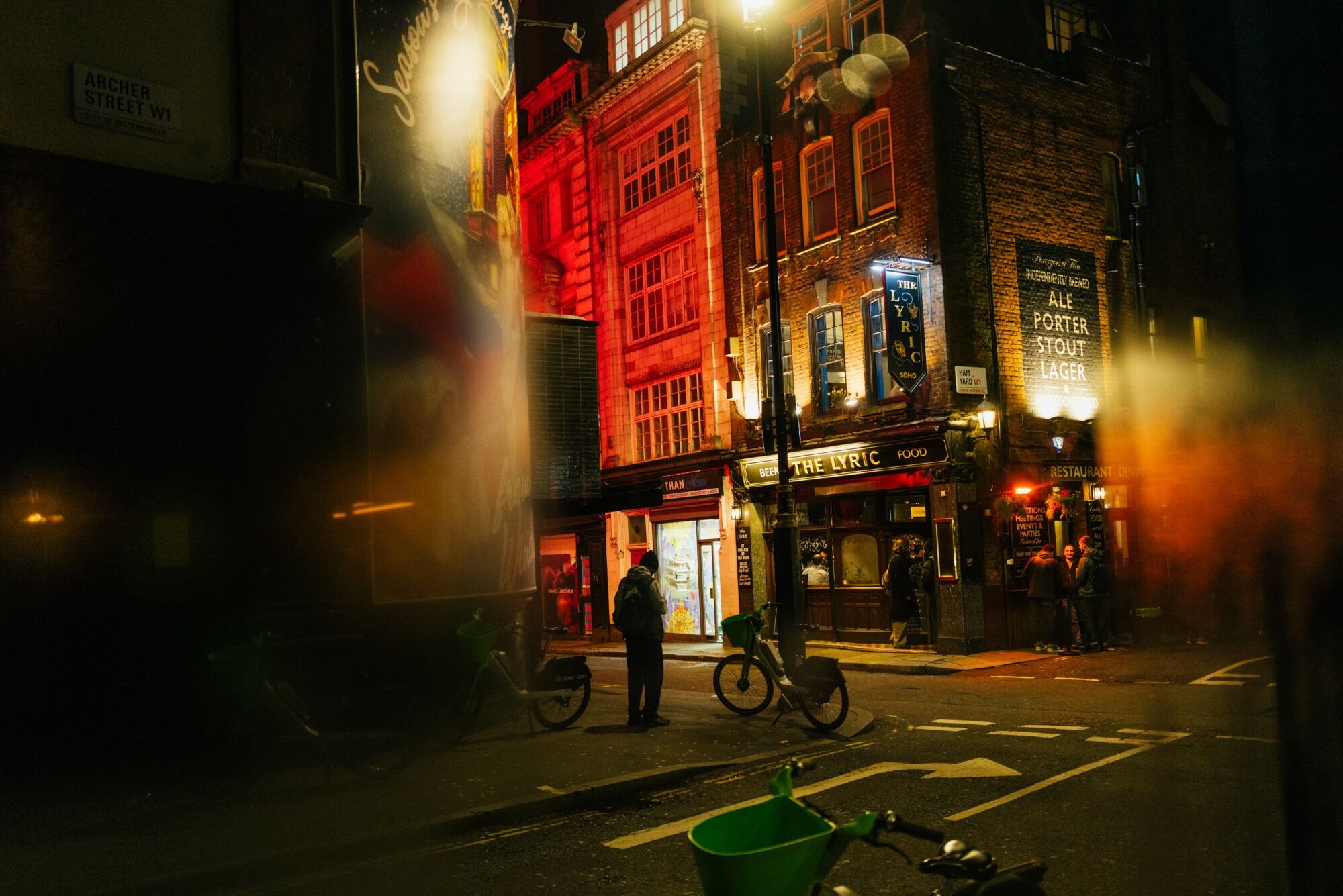
British Pubs and Restaurants Forced to Cut Back Opening Hours
About three-quarters of UK nightclubs have shut since 2005 and there “won’t be any left come 2030” if the current trajectory continues, according to Sacha Lord, Manchester’s first Night Time Economy Adviser and the co-founder of Warehouse Project. Even pubs are collapsing, with the overall number dropping by a quarter since 2000, according to the British Beer and Pub Association.
Local music venues have probably suffered the worst. London lost about 35% between 2007 and 2015, prompting a targeted rescue plan backed by then-mayor Boris Johnson. Intervention helped slow the decline, his successor Khan said after about a year in office, but these venues face more threats than ever, the NTIA said.
Over 120 across the UK shut in 2023 during the “worst year for closures” in at least a decade, according to Music Venue Trust Chief Operating Officer Beverley Whitrick. About 38% lost money, and the “entire sector would be bankrupt” without external support, she said.
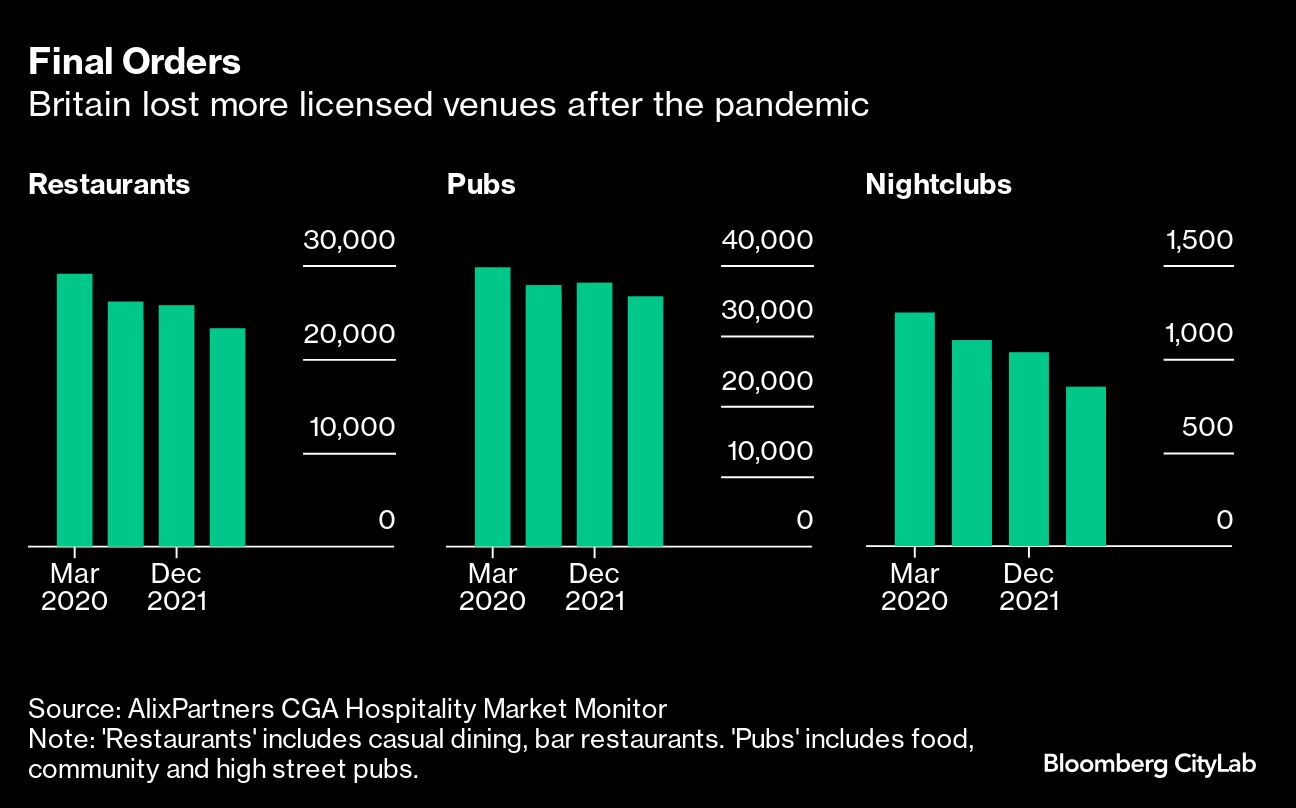
Final Orders | Britain lost more licensed venues after the pandemic
The night hasn’t gone totally silent, to be sure. Well-promoted festivals, events and big-ticket concerts featuring artists from Stormzy to Taylor Swift have been on a tear and will remain strong, the NTIA said. Even ABBA holograms in London’s East End were minting more than $2 million a week late last year.
But many festivals and gigs also risk disappearing unless local outlets — crucial incubators for Britain’s next top talent — are protected, Lord said. “Stormzy started off in a grassroots venue somewhere, so we need these venues — they are the supply chain.” That sentiment has prompted advocacy groups including the Music Venue Trust to ramp up lobbying for a levy on the most successful parts of the industry to support their grassroot counterparts.

Stormzy Performs At All Points East Festival 2023
Nightlife advocates in several hubs outside the UK say the scene is on similarly shaky ground.
In Berlin — renowned for its club scene and comparatively lax rules — venues are only starting to recover from one of their “worst ever years” in 2023. Tourist numbers are still subdued compared with before the pandemic, inflation has stung the industry and people are spending less, according to Lutz Leichsenring, co-creator of the Amsterdam-based nightlife industry consultancy VibeLab.
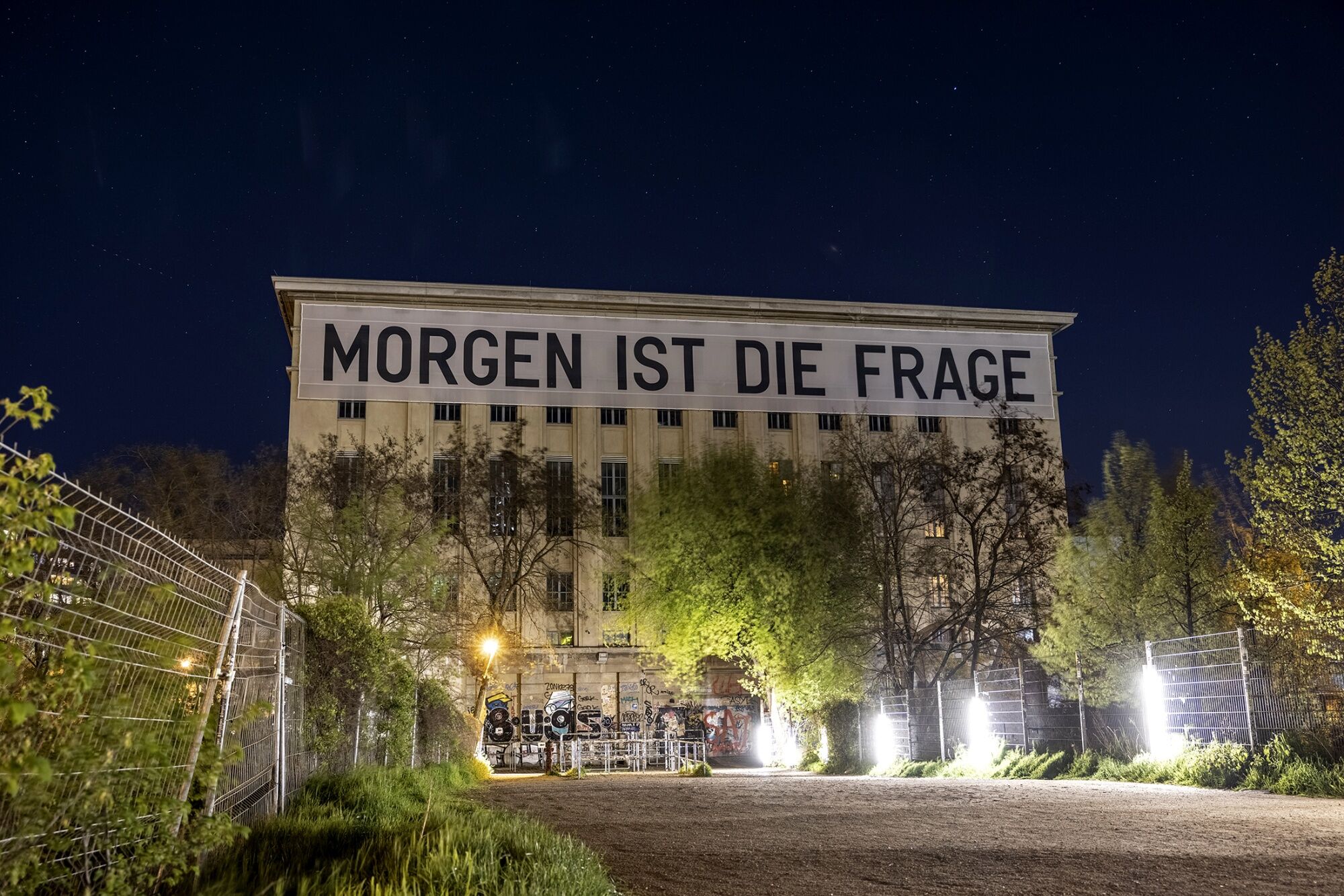
Berlin Clubs Likely To Be Among Last Venues To Reopen
Two wars have also cast a long shadow. After Russia’s invasion of Ukraine added to Germany’s inflation malaise, growing social divides over the conflict in Gaza have dampened the club scene in Berlin probably more than in any other city. Even with cooling inflation and a brighter outlook, a quarter of venues asked “say they think about giving up in the next 12 months if it doesn’t really get better,” Leichsenring said.
A more enduring and existential threat, however, is skyrocketing rents and property values.
“We are getting gentrified more and more out of the city center, and then we are gone,” Leichsenring said. “You can see this in cities like New York, Paris, London, which are not affordable anymore.” That’s also true for smaller cities like Nashville, Tennessee, which is being “taking over by corporates” while country music makers lose their studios and rental contracts, he added.
For those not pushed to the periphery, common obstacles include limited transit services between 1 a.m. and 5 a.m., stringent noise rules, safety fears and stigma.
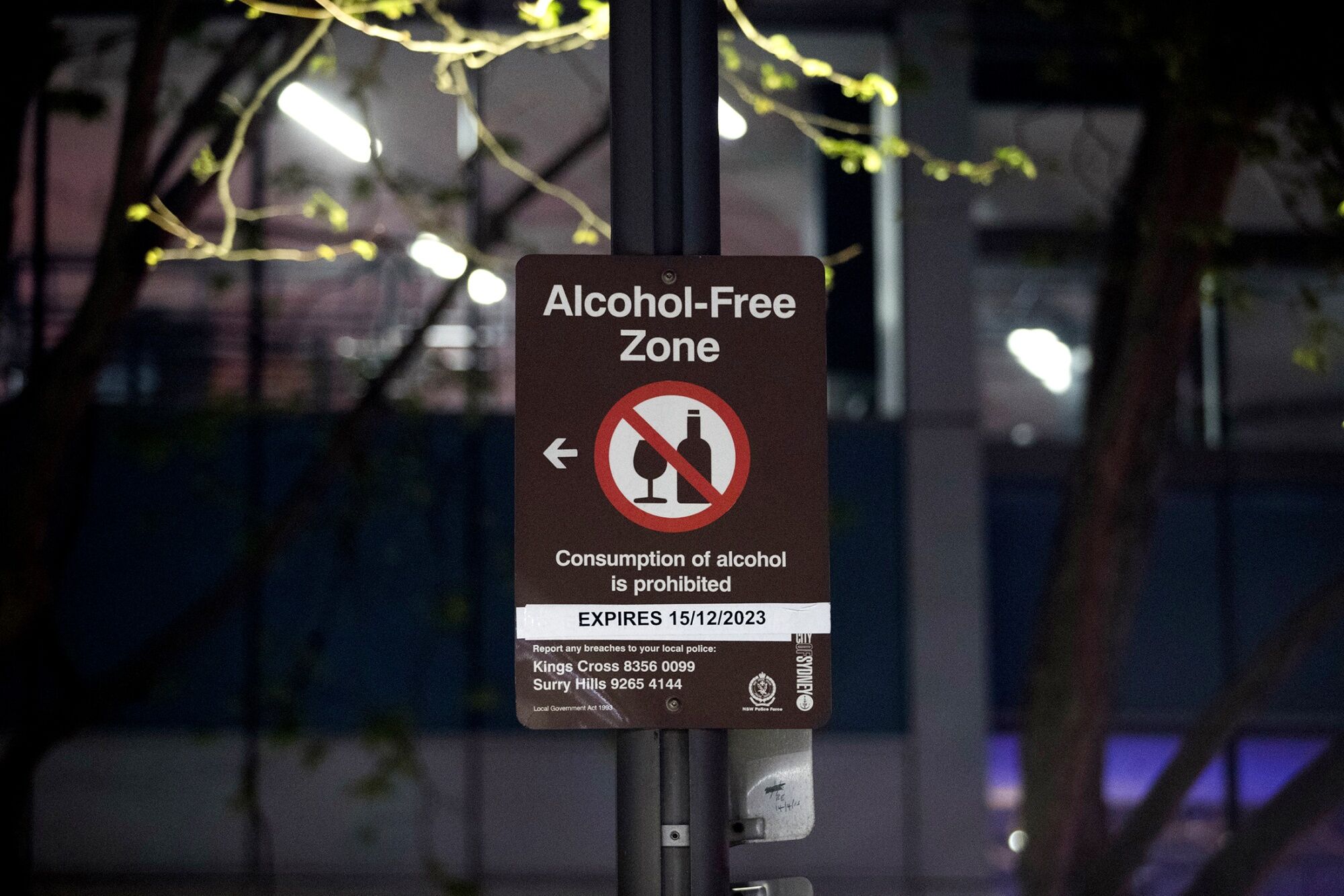
Sydney Looks to Amp Up Nightlife to Shed Sleepy Reputation
Prohibitive licensing rules have been the nail in the coffin for many venues in London too, according to Lord, with many councils refusing to approve extended hours beyond 11 p.m. — even in areas renowned for their late-night scene.
In Camden — a London borough famed for its live music, bustling market and counterculture — a recent proposal to extend framework hours for venues on case-by-case basis went back to the drawing board after objections from police and a residents’ association, citing fears of increased crime and noise. “That’s killing nightlife, and it kills investments,” Lord said. “And the knock-on effect is the restriction of jobs, the restriction of the supply chain, the whole ecology around that.”
Camden council formally adopted its own strategy in February to safeguard and expand its broader nighttime economy, following input from some 1,600 people over two years. Recommendations include a business rates discount program to support grassroots music and cultural venues, piloting night markets, improving coordination and cleaning of hotspots, and promoting alcohol-free experiences.
Despite some pushback, the plan has broad support from neighborhood communities. It’s “a third of our jobs, almost a billion pounds in Camden alone, a huge tax raiser and a livelihood sustainer for families,” local councilor Danny Beales said. It’s also “a place of creativity, art, culture, music that’s been core to Camden’s heritage and identity for so long.”
The council has also received direct support from the city’s night czar in sharing data and insights, participating in meetings and championing the sector in the context of a “strong voice against the nighttime economy,” he said. Beales added that he hopes to see more people, including critics of city officials, become more directly involved in setting policy.
“Apart from just sending a tweet, have you written to your counselors?” Beales asked. “Have you taken part in a consultation about licensing? Because ultimately that’s how you change things, by getting involved.”
Campaigners in Montreal, Quebec — known as Canada’s “city of festivals” — say they’re fighting a similar battle for more local support.
Officials in January unveiled a plan to create “nocturnal zones” with more relaxed noise bylaws, in addition to a dedicated 24-hour district, to support the sector and generate fresh revenue for the city. The plan — which “delighted” campaigners — touts potential spending on soundproofing venues and efforts to improve transport options.
But the plan has been years in the making, and the city is struggling to progress beyond pilot projects, according to Mathieu Grondin, director of nonprofit MTL 24/24. The advocacy group said the city has given mixed signals: It’s trialed all-night events and paid homage to the importance of nightlife to Montreal’s cultural DNA, while also giving disproportionate “leeway to Nimbys” amid “lightning-fast gentrification.”
Policymakers are “hypersensitive to noise complaints,” which is reflected in the policy itself, Grondin said. “The word ‘cohabitation’ comes up like 75 times, and the word ‘artist’ is there once or twice.”
“Everybody has a right to sleep,” he said, “but there’s also a way to avoid noise complaints if you don’t kick 10,000 people out at the same time on the same street.”
Conflict with the real estate industry is a common challenge, but it needn’t be the death knell, said VibeLab’s Leichsenring. Cities that develop a clear definition of culture — and in which policymakers see nightlife not just as booze or dance, but work, community and creativity — have more scope for compromise and progress, he said.
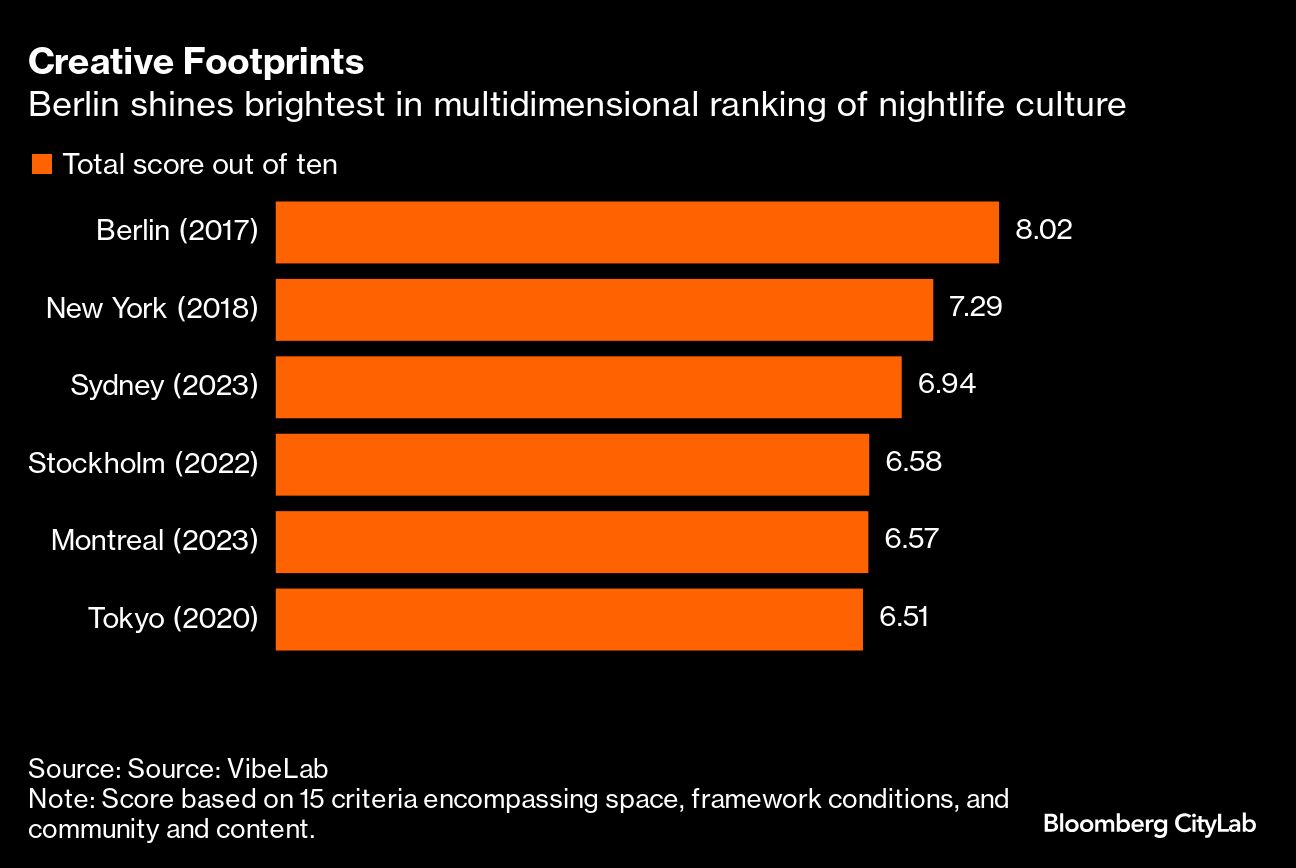
Creative Footprints | Berlin shines brightest in multidimensional ranking of nightlife culture
That’s true in Berlin, where Leichsenring says lobbyists and authorities have cemented a “really good relationship” that has helped honor its longstanding status as the jewel of European nightlife. With funding for research and advocacy — which extends to soundproofing of venues, safety training, and curbing of illegal raves — creative voices have gained greater scope to influence regulations and planning, he said.
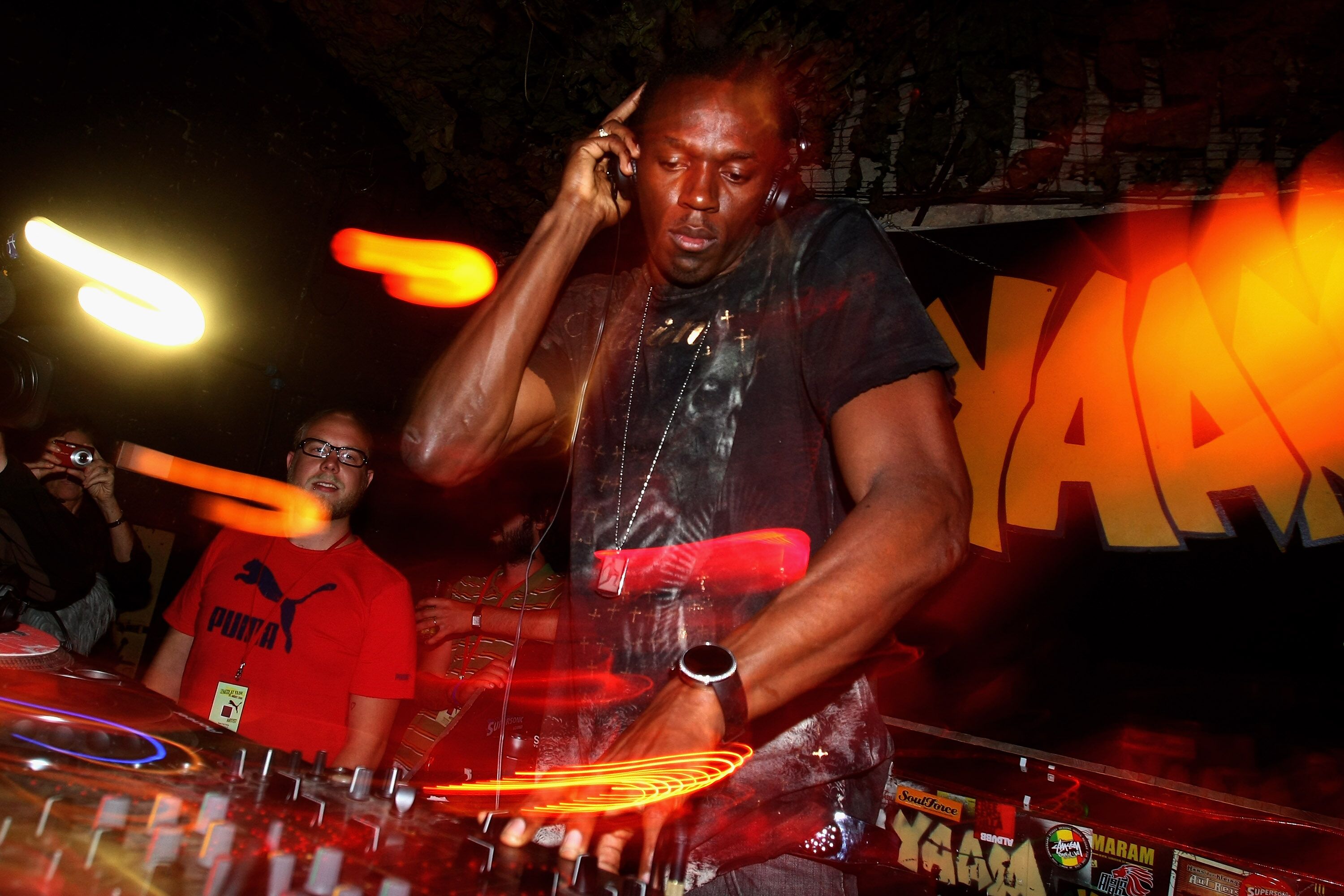
Puma Party At Yaam Club
“We get a lot of support,” he said, citing the city’s granting of a 30-year rental agreement for YAAM, a market spanning bars, dance floors and food stalls that’s operated since 1994 and survived five removals. “Now they can invest in the building.”
“The better we are organized, the more we sit at the table when decisions are made on city development,” he said, adding that the decline of demand for office and retail spaces in inner cities is a “big chance for us.”
Another major milestone for Berlin is the recent addition of its techno culture to the country’s Unesco list of intangible cultural heritage. That recognition comes with legal advantages for operators worried about their existence, including lower requirements for opening venues and enabling access to state subsidies and non-profit funding, the Berlin Music Commission said.
Armed with research and improved data, Berlin is set to publish a holistic nighttime strategy in June that’ll involve stakeholders across the city government for the first time, he said. Similar efforts in dozens of cities from Sydney and Melbourne to Bogota and Tokyo add to signs of growing appetite for more support and coordinated management of life after dark.
Many of these efforts are bearing fruit, albeit at various speeds.
After successfully lobbying Japan’s government in 2015 to scrap a notorious no-dancing-after-midnight law, nighttime advocates jointly developed strategies to bolster offerings for tourists and are also set to advise the Tokyo Metropolitan Government on nightlife policy from May.
Live music and entertainment is “booming” after Covid, with total revenues substantially higher compared with 2019, according to Japan Nighttime Economy Association Director Tak Umezawa.
But like some global peers, Tokyo’s challenges also include emerging shifts to demand, including a growing trend of people calling it a night earlier, according to Umezawa.
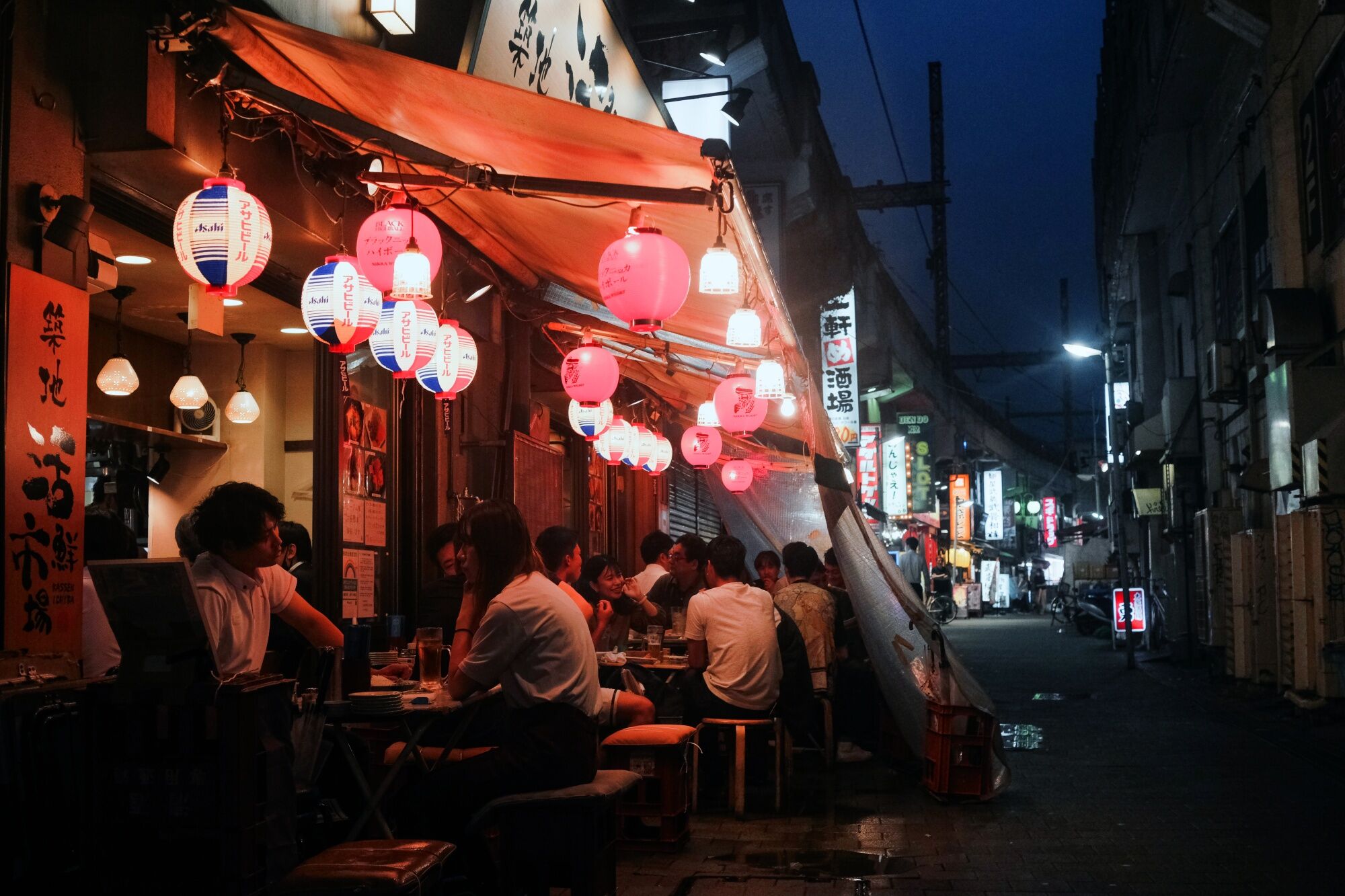
Japanese office workers are eliminating trips to bars after business dinners, and others are also drinking less, he said. On top of extending transit operating hours, he said cities may need to generate new demand by offering a wider range of high-quality activities. That may include shows and special parties at unique venues, night markets and other cultural activities.
A similar shift toward drinking less — at least among Generation Z — may be taking hold in the UK, which means thinking carefully about which venues are worth saving, according to restaurant industry veteran David Strauss.
“The idea that we’re going to keep all these pubs is ridiculous,” said the co-owner of Bouchon Racine restaurant in Farringdon. “Everyone I know is trying to drink less, and you’ve got a generation that’s coming through that are definitely not drinking the same way. Like travel agents, there’s gonna be fewer pubs in future Britain.”
Strauss believes people are also increasingly keen to spend money at independent venues where they feel there’s community or connection, rather than at big-name chains.
“People are still going out, but they’re now being far more choosy,” Manchester’s Lord said, citing a collapse in the mid-week trade for UK clubs.
Award-winning restaurateur Markus Thesleff — who’s made a big bet on London’s financial center with Mexican-Japanese fusion restaurant bar Los Mochis City — echoes the sentiment. “Ultimately our business is about memories and experiences,” he said, crediting great food and entertainment as a necessity for long-term survival, especially at the higher end of the market.
The newly launched rooftop venue at 100 Liverpool Street is one of the biggest openings in London this year, bucking the trend with weekend operating hours extending to 3 a.m. He believes the well-connected location — close to the Tube and suburban railway lines — and panoramic views in a rapidly transforming part of the city will draw destination diners and cocktail connoisseurs until the early hours.
Another major new entrant may also spark fresh life.
The planned summer launch of beer palace and cook-haus Albert’s Schloss in London “is gonna be massive for Soho,” restaurateur Strauss said, with 18,000 square feet to accommodate 500 people for dining, four bars and a stage for live entertainment. “If they can get that right — that’s a catalyst,” he added.
In addition to Schloss, Manchester may also export inspiration for London’s policymakers. Recently crowned the UK’s nightlife capital (again) by the Sunday Times, it’s the only British city other than Liverpool with a positive increase in net openings — 10% and 22% respectively — in the last two decades, NTIA’s Lord said.
“The leaders of the city have always understood the importance of our culture, and there’s always been this can-do approach,” he said, citing more conducive conditions for nightlife hotspots, along with efforts to lure global major events like 2024 MTV European Music Awards and Chanel’s Métiers d’Art.
London night czar Amy Lamé — who was not permitted to comment due to election rules ahead of a mayoralty vote on May 2 — has argued she’s the right person to lead the city’s effort, citing efforts to help “hundreds of night-time venues keep their doors open.”
Lord, who holds a similar role, said it’s a “big, big job” in Manchester and is certainly “too big for one person” in London. “I think that job’s for 45 people,” he said, arguing for bolder support from councils through to national politicians.
“When the capital is bouncing, it does help the rest of the country, and you need the capital for this Cool Britannia approach,” he said.
–With assistance from Julian Harris.
(Adds context on Berlin’s outlook in the 32nd paragraph. An earlier version was corrected to remove erroneous context on the decline of bars in London in the third paragraph and to fix the name of Club 414.)
Most Read from Bloomberg
©2024 Bloomberg L.P.
News Related-
Recall Just Announced For Popular Cookies Featured In Holiday Gift Baskets
-
Eagles rally past Bills in overtime as Chiefs win
-
Reality bites the green energy agenda
-
Sandigan orders Marcos Sr. pal to pay workers
-
DSWD: Shear line, LPA affect 1.2 million people; over 18,000 families evacuated
-
The mayor of Paris is making a loud exit from X, calling the platform a 'gigantic global sewer'
-
Rain showers, thunderstorms over Luzon, including Metro Manila — Pagasa
-
'Naruto' live-action film adaptation is in the works
-
NASA Highlights Stingray Nebula
-
Manila's Lagusnilad underpass opens
-
China probes debt-ridden financial giant
-
China's VUCA situation
-
Unraveling the mystery that is diabetes
-
Bangladesh's nuke plant is not going to steal PH investments
